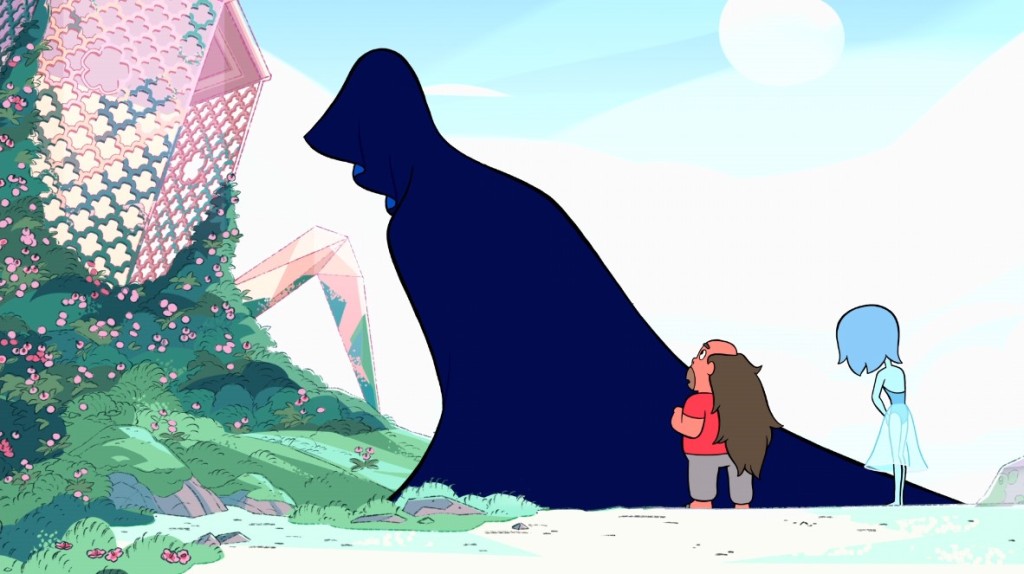
Bongo: You’ll be transported to an alternative reality, a reality where there’s another Arnold Rimmer. Some decision was made at some point in your life where he went one way, and you went the other. You might find he’s quite different to you.
“Ace” Rimmer: Sounds like quite a caper.
Bongo: You’ll do it?
“Ace”: I’m a test pilot in the Space Corps, Bongo. It’s my job to do it.
– “Dimension Jump”, Red Dwarf
Airdate: April 23, 2018
Written By: Katie Mitroff, Paul Villeco, and Joe Johnston
Plot: Garnet has taken a job at the Big Donut to try and test the idea of dimensional pools – events that are far beyond the confines of typical timelines. Steven and Garnet get enthralled and decide to test the concept with random events. It all culminates in trying to rescue cats all while having a breakdown in the rain.
Review:
Hey, guys! Let’s talk about Alternate Timelines and how it applies to this sci-fi show! (This is, technically, a blog about sci-fi shows. Kinda. Sorta.)
If you were to list every sci-fi plot used in the history of classic sci-fi television, the concept of “alternate timelines” would likely be near the top of the list, up there with “time travel” and “mind swapping”. Call it what you want – the dimensional theory, parallel universes, whatever. If it involves our main characters traveling to a universe that is a few meters off of what we are used to watching, BOOM, you’ve embraced the trope!
Obviously, there’s nothing wrong with this trend. After all, it is interesting to see our society or favorite characters with alternate variables. The use of alternate realities can serve as a reflection on how society and culture can be impacted positively or negatively, and why society and people are the way they are. Hell, Red Dwarf touched on this topic several times; occasionally for societal analysis (sexism in “Parallel Universe”, not quite the same thing but still notable), once to wrap up a series (“Only the Good”), but more notably for its examination of Arnold Rimmer via “Ace” in “Dimension Jump”, one of the more celebrated side characters in the series.
Steven Universe actually kinda took a look at the idea of alternate realities in one of its earlier outings, “Steven and the Stevens”, and Steven’s possession of a magical hourglass (ah, time travel) and his use of the device to start his own band led to the creation of an alternate timeline. Let’s just cut to the chase – the last line of the episode has the line “I learned to stay true to myself/By watching myself die!” Technically, this entire show has been in an alternate timeline… which took over and became the prime timeline.
Hell, Garnet’s whole “future vision” relies on alternate timelines depending on how far you’re willing to stretch the idea. Consider that she can project various outcomes, but there is almost no certainty about those scenarios occurring. Consider “The Answer”, and how Sapphire’s precognitive vision was rebutted in a way that utterly changed her life – it was a literal formative moment for Garnet.
Now, let’s take one more plunge into the “alternate timeline” arena with “Pool Hopping”. AKA, Steven Universe‘s 731st quest to wring every tear out of our eyes.
Continue reading








You must be logged in to post a comment.